1
Budgeting: Why and How
Act before there is a problem.
Bring order before there is disorder.
Lao Tzu
Budgeting is more than just a job we have to get done to satisfy the financial department. Planning and budgeting can help us lead our team to success. Sometimes, when we write a plan, we catch errors. Its a lot better to catch errors in a plan than to have problems later on in the office or on the shop floor because you didnt catch the errors. In fact, its been shown that good planning will typically reduce the costs of a project by about a factor of 10.
In this chapter, you will learn how to create a simple expense budget. Theres a lot here, but dont worry. Every idea in this chapter will be explained further on in the book in more detail. Our goal for this chapter is to create a simple success together: your first budget. Lets go!
 Plan A written document describing what you are going to do to achieve a goal. It usually includes the steps involved and a timeline for completion.
Plan A written document describing what you are going to do to achieve a goal. It usually includes the steps involved and a timeline for completion.
Budget A plan that includes the money you will spend and when you will spend it. In addition to expenses, a budget can also include income.
Team The people who work with or under you to achieve a goal you all share. It doesnt matter if your organization calls them a team, a department, or anything else. What matters is that you will support and guide these people, all of you will work together, and all of you will deliver the results the organization wants.
Why Make a Budget? Who Reads Budgets?
There are several good reasons to create a budget and to make it a good one. The reasons are tied to the people who will read and use the budget. Each reader will look at the budget in a different way and do something different with it. If you know your readers, you can make a budget that will impress everyoneand, more important, show how your group is contributing to the organization and therefore approve the funds you need to proceed. If you know how the budget will be used, you will know how to write it in an easy-to-use way. More important, it will help you succeed and show that you are a good manager and that your team is doing a good job. So, lets take a look at your audiences and what they will do with your budget.
You and Your Team
You and your team are your first, and most important, audience for your work plans and your budget. When you read the budget, you want it to make sense. This means that you understand it, of course, but it means more than that. The budget should be believable and workable and it should work the way your team works and be appropriate to your situation.
Your Boss
Your boss is your second audience. Of course, you want the budget to be correct, clear, and complete for him or her. If your boss checks your work closely, you dont want any errors to show up. If your boss doesnt check it closely, you certainly dont want the budget to go further upstairs with mistakes in it. Your boss will also check the totals of the budget against available funds. In some companies and in many government agencies, the boss will also check the budget against rules and limitations. Some organizations require that top managers approve the line-item budget.
A Budget That Works

Nicolai was planning the budget for supplies for a small manufacturing shop. The parts he needed to buy were cheaper by the caseload than by the box. But Nicolais shop didnt have much warehouse space, so he chose to buy a few boxes at a time, instead of a whole caseload. He spent more on the parts, but he was working within the space he had. The extra money he spent on the parts was worth it, because it saved the cost of renting a larger space to store the parts.
Your boss will also seek or approve funds for the budget. In a company, you may do work for another department, and then bill that department for the work you do. Or the cost may be billed to a client, but your boss will need to make sure that you are planning to spend the right amount of money for that client. Some of the money may come from restricted funds, such as a training budget or government grants. Then you can use that money only for the purpose specified in the budget. You will have to track this money carefully and you may have to work with other restrictions on the funds, such as using particular types of contracts or submitting receipts that prove how the money was spent.

Line-item budget A budget where the name of each line is set, as is the amount of money you can spend on each item. If you must work with a line-item budget, and it specifies $1,000 for training materials and $500 for office supplies, you cant spend $1,100 on training materials and $400 on office supplies. The authority to move money from one line to another must be granted at a higher level.
Block budget The opposite of a line-item budget. You are given a block of money. You present the details of your plan in line items. But, later on, if you want to spend more on training and less on office supplies, you are free to do so. As long as you dont overspend the block of money before the end of the year, the money is under your control.
Three other audiences for your budget are the financial department, the accounting department, and, possibly, the human resources department.
 Restricted funds Money that you can use, but only for a specific purpose or with specific limitations or requirements.
Restricted funds Money that you can use, but only for a specific purpose or with specific limitations or requirements.
The Financial Department
The financial department is responsible for acquiring and planning for the use of all funds within your company. The budget you put together becomes part of the whole corporate budget they create. If your company has an annual report, your plan and budget will appear as a part of the total financial picture. If you deliver a clear budget with no errors, you make their work easieras well as your own, because you wont have to correct it later on. If your team gets its work done well within your budget, you improve the companys bottom line and help ensure success.
 Allocated Assigned to be spent for a particular purpose. If your budget is accepted, this means that the money has been allocated for the purposes listed in your budget. Money is usually allocated for use within a particular year.
Allocated Assigned to be spent for a particular purpose. If your budget is accepted, this means that the money has been allocated for the purposes listed in your budget. Money is usually allocated for use within a particular year.
The Accounting Department
The accounting department is responsible for managing and tracking all financial transactions for the company. They will create account codes for each of your line items and assign them in their computer system. Every time money is approved or spent, they will track that event and take from the money allocated in your budget and show it as actually spent.
The Unexpected Raise


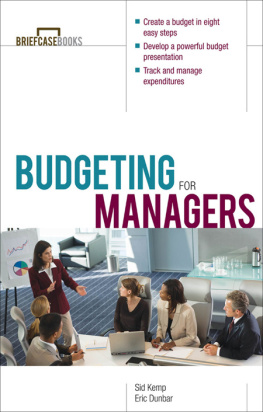


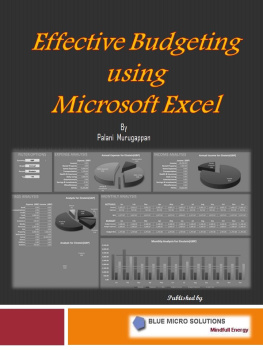
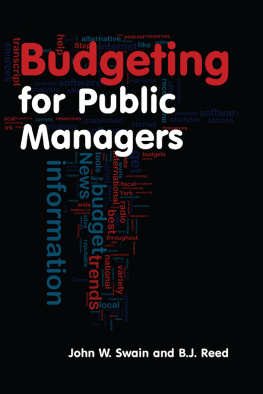
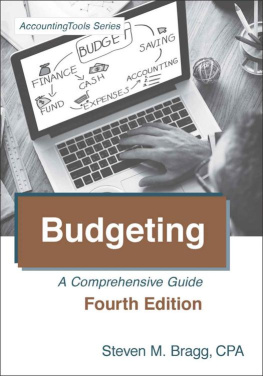
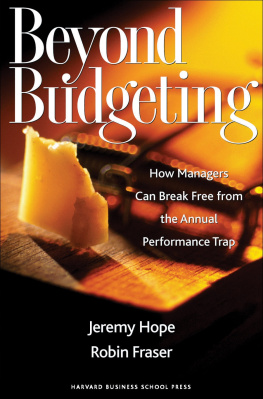

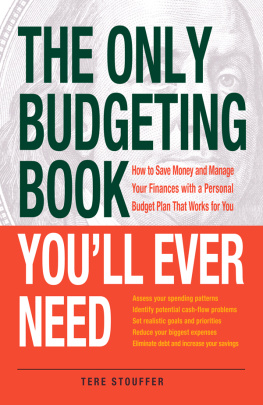
 Plan A written document describing what you are going to do to achieve a goal. It usually includes the steps involved and a timeline for completion.
Plan A written document describing what you are going to do to achieve a goal. It usually includes the steps involved and a timeline for completion.
